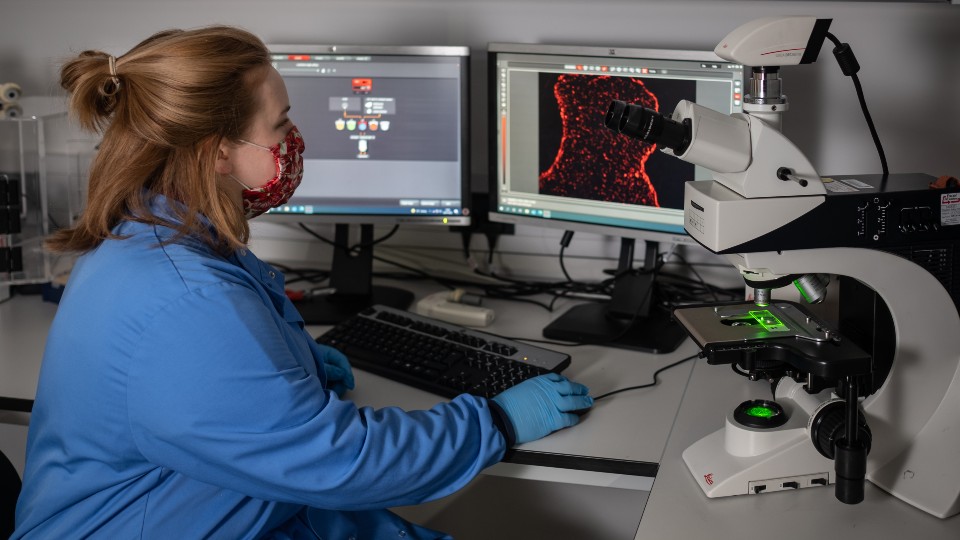CRACK IT Challenges is The National Centre for the 3Rs (NC3Rs – Replacement, Reduction and Refinement) open innovation funding competition which brings together industry, academia and SMEs to deliver ready-to-use products and services to replace, reduce and refine animal use.
Led by Professor Mark Lewis and Dr Andrew Capel from the University’s School of Sport, Exercise and Health Sciences, the team will further investigate Challenge 37: STRATIS having completed phase one of the project in 2021.
The aim of this challenge is to develop a bioengineered tissue model that mimics human musculoskeletal injury and regeneration, providing researchers with a tool to develop and screen potential new therapies in high-throughput, and ultimately aid in reducing the use of animals in biological research.
The platform must offer a model for novel wound therapeutics and approaches to restore form and function after significant soft tissue injury.
Dean of Loughborough’s School of Sport, Exercise and Health Sciences, Professor Mark Lewis, explained:
"Following injuries that are caused by high-energy traumas, such as those resulting from military/combat environments, soft tissue is observed to continually degrade even once treated. This affects the recovery of the patient and has long-term implications for their ability to function in daily life.
“In this research, we will develop a laboratory grown soft tissue model of traumatic injury in humans, that creates new understanding in why soft tissue fails to recover in this situation.
“Identifying the biological processes that cause this issue, will allow us to test new targeted therapeutics that may be able to aid soft tissue regeneration in this setting.”
Dr Andrew Capel added:
"Our group at Loughborough has significant track record in using in vitro tissue engineering techniques to investigate human musculoskeletal physiology at the cell level.
“However, a key aspect of this research is to ensure that this technology is broadly accessible to others in the field.
“We hope that by making these systems commercially available, we will be able to provide a human relevant alternative to the use of animals, while decreasing the time taken to propose new therapies.”
The research project is due to start in March 2022 with the first findings delivered in early 2023.
